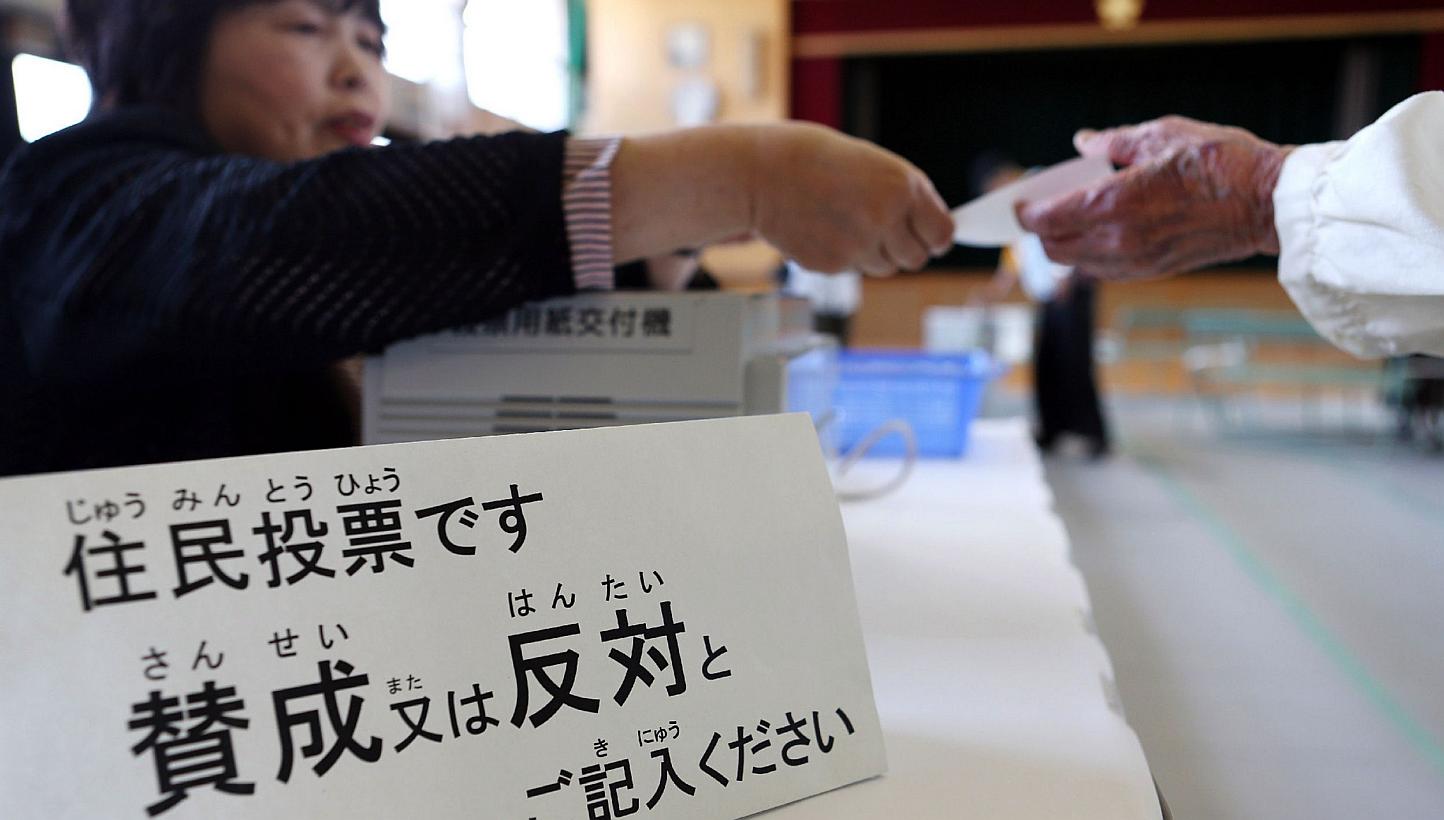Osaka says no to flamboyant mayor’s reforms
Sign up now: Get ST's newsletters delivered to your inbox

A resident (right) receives a ballot at a polling station in Osaka on May 17, 2015 to vote on a referendum to reform the city administration into a metropolitan government. The people of Japan's second city Osaka narrowly voted down Sunday a plan to streamline governance that its flamboyant mayor said would enable the city to emerge from Tokyo’s shadow, according to election board figures. -- PHOTO: AFP
Follow topic:
TOKYO (AFP) - The people of Japan's second city Osaka narrowly voted down Sunday a plan to streamline governance that its flamboyant mayor said would enable the city to emerge from Tokyo's shadow, according to election board figures.
On the table had been what supporters say was a way to slash waste, cut out administrative duplication and strengthen the city's brand at home and abroad, making it more attractive to investors and sports event organisers.
Apeing the set-up of big brother Tokyo, the proposal would see Osaka's current 24 separate wards merged into five "special districts". Proponents said it would save the city's 2.7 million people a hefty 270 billion yen (S$2.99 billion) over the next 17 years and make it easier to sell Osaka as a venue for business or big sports fixtures.
Opponents said the move would save just 100 million yen annually against an initial necessary investment of 60 billion yen.
Flamboyant but divisive mayor Toru Hashimoto, whose Osaka Restoration Party backed the plan, admitted his defeat and told a late night news conference: "I will retire as a politician" after his current term as mayor expires.
With 100 percent of ballots counted, the number of yes votes stood at 694,844, against 705,585 who said "no" to the plans, the Osaka election board said.
Osaka is suffering something of an identity crisis. Hundreds of years ago, it was the nation's biggest and wealthiest commercial hub, with rice and other major commodities shipped from all over the country for auction in "the kitchen of the nation".
But it all began to go wrong in the Meiji Restoration of 1868, with the fall of the isolationist shogunate (military government) that had ruled Japan for more than 250 years. The imperial family was brought out of seclusion in nearby Kyoto and moved to Tokyo, which was proclaimed the new capital of a rapidly modernising country.
Although still considered Japan's second city, Osaka has long since lost its status as second most populous city to Yokohama, Tokyo's sprawling neighbour. But it has retained its distinctive culture.

